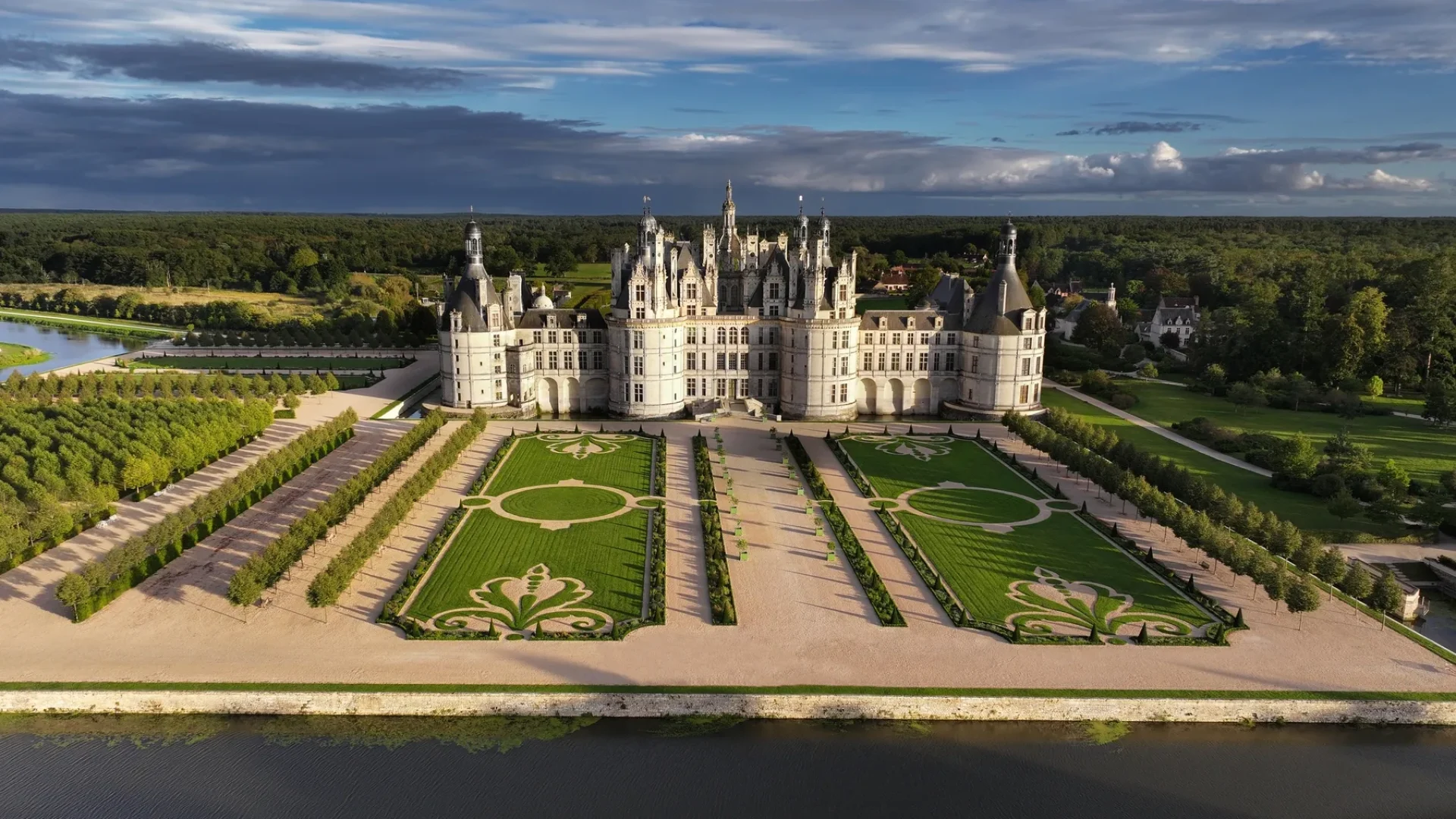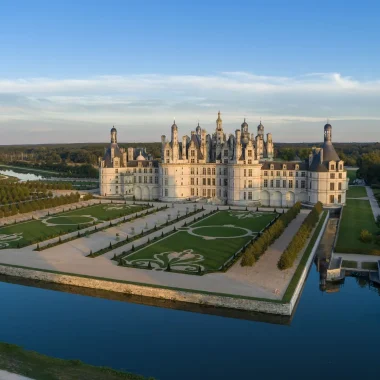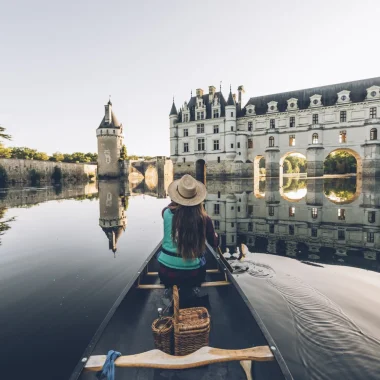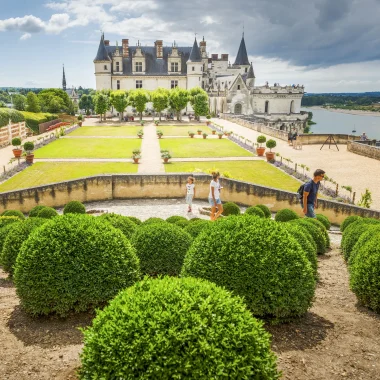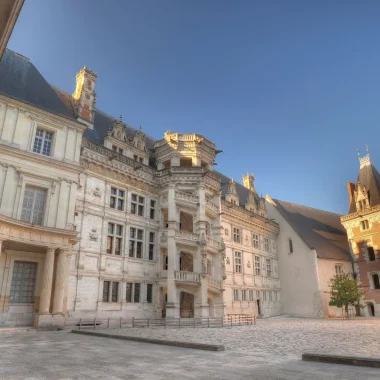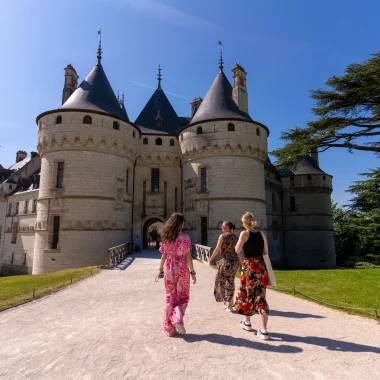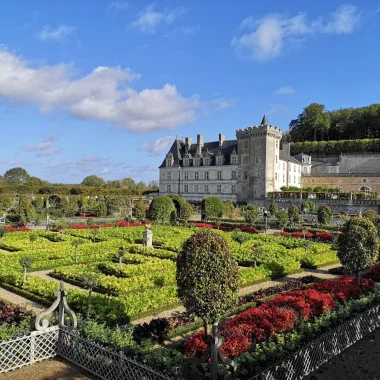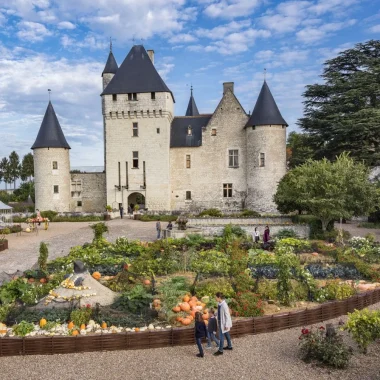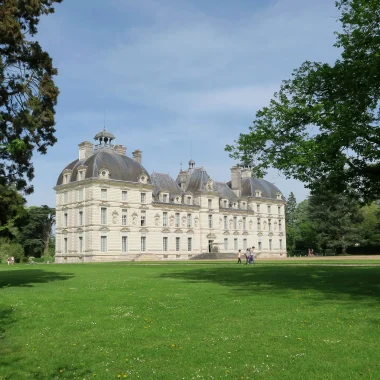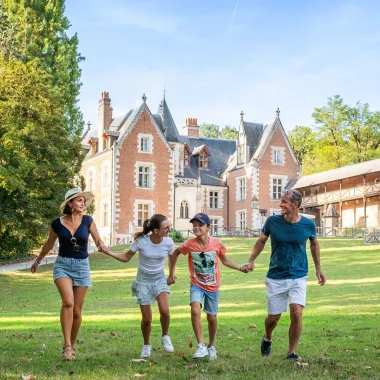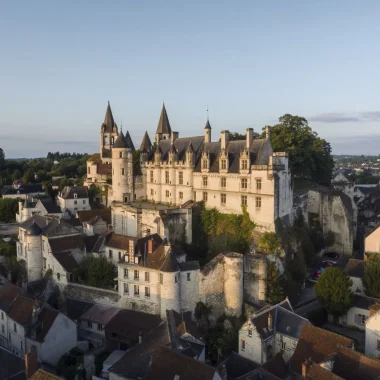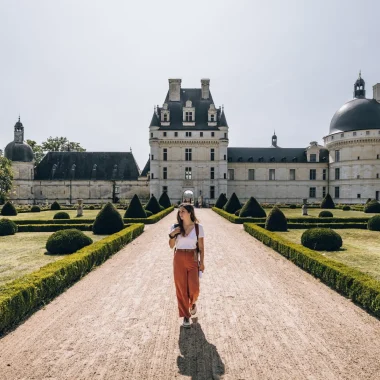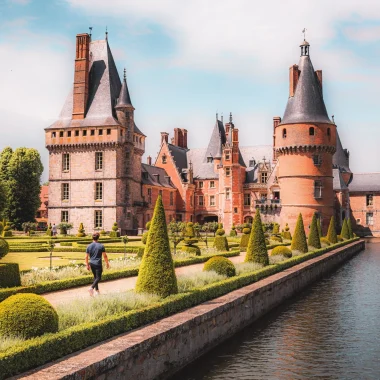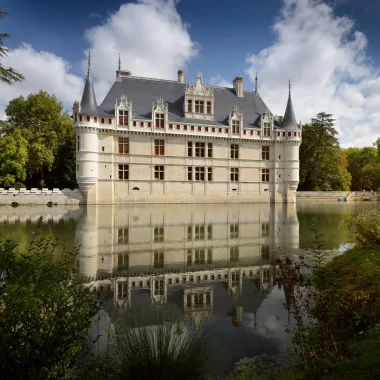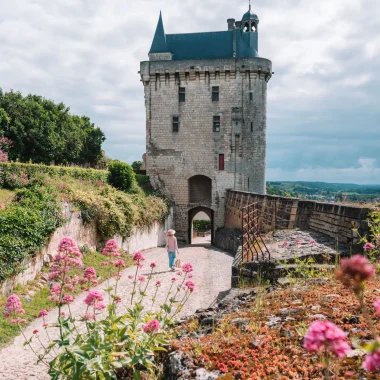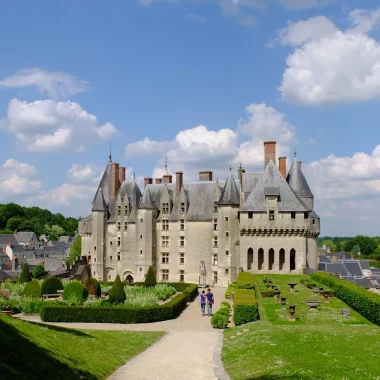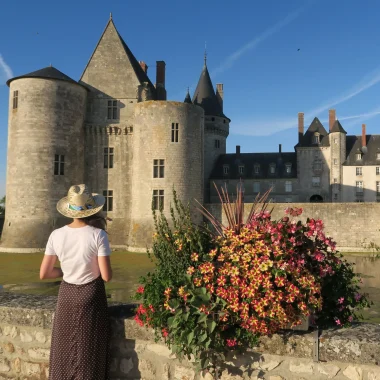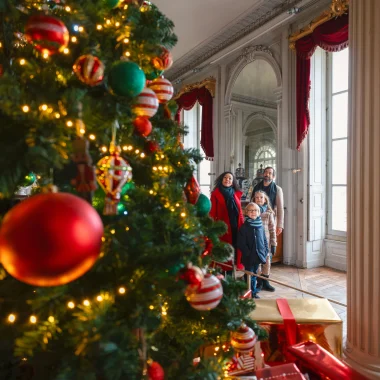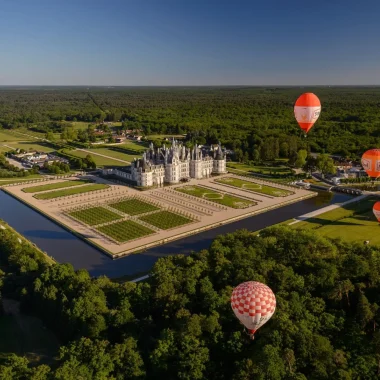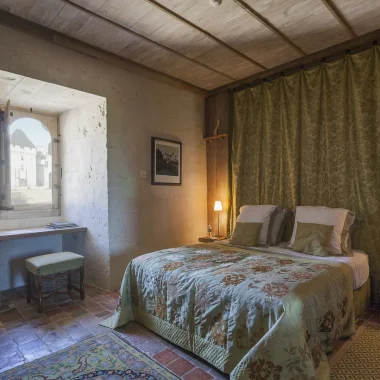Chambord, Amboise, Chenonceau, Azay-le-Rideau… So many legendary names line the royal river, making it the dream destination of thousands of visitors every year! Come and discover the breathtaking Loire Châteaux and step into the heart of French history thanks to the 15 architectural masterpieces that comprise the exceptional collection of the Loire Valley Châteaux. Admire their richly decorated interiors, stroll through the splendid parks and French-style gardens, marvel at their particularities… Embark on a unique and unforgettable journey!
Must-See Iconic Châteaux
It’s impossible to visit the Loire Valley without discovering its iconic châteaux. From the majestic Château de Chambord, a Renaissance masterpiece, to the elegant Château de Chenonceau, gracefully spanning the Cher, these fascinating sites tell the story of centuries of history. Explore the Royal Château of Amboise, a veritable balcony overlooking the Loire, and the Royal Château of Blois, home to 7 kings and 10 queens of France. These not-to-be-missed châteaux promise an unforgettable journey to the heart of history!
Breathtaking Châteaux & Gardens
For lovers of nature and heritage, these châteaux offer sumptuous gardens in perfect harmony with their history. The Château de Villandry marvels at its world-famous Renaissance gardens. The Domaine de Chaumont-sur-Loire blends art and landscape in a unique alchemy. As for the Château du Rivau, its enchanting gardens inspired by medieval legends will enchant you. These places are an invitation to relax and marvel.
Best Châteaux to Visit with Kids
The Loire Valley is the perfect destination for families. Its châteaux invite young and old alike to enjoy fun, interactive experiences. Immerse yourself in the world of Tintin at Château de Cheverny, explore the genius of Leonardo da Vinci at Château du Clos Lucé or relive medieval times at the Cité royale de Loches. The Château de Valençay combines history and entertainment, while the Château de Chambord and its vast estate is the ideal place to enjoy outdoor activities. Something for all the family!
Fairytale Castles for a Romantic Getaway
Experience a real fairytale in castles of spellbinding charm. The Château d’Azay-le-Rideau, gracefully reflected in the waters of the Indre, is an invitation to romance. The Château de Chenonceau, also known as the ‘Château des Dames’, captivates with its flower-filled gardens and elegant gallery spanning the river. As for the gardens of the Château de Villandry, they offer an idyllic setting for a romantic stroll. These exceptional places promise magical moments for two.
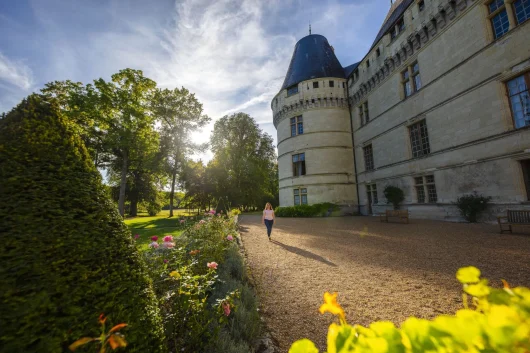
Loire châteaux Association- Vallée des rois
In addition to the most renowned sites, you will find smaller family-owned châteaux, breathtaking gardens tended by enthusiasts and remarkable religious buildings… all equally worth discovering! The association Les Châteaux de la Loire – Vallée des Rois brings together over 100 outstanding sites and monuments to visit, whether in the heart of the Loire Valley or off the beaten track, from Nantes to Apremont-sur-Allier.
Medieval Lovers
If you’re passionate about history and medieval epics, these châteaux will transport you back to the heart of the Middle Ages. Discover the Royal Fortress of Chinon, where Joan of Arc met Charles VII. Immerse yourself in the world of knights and royal weddings at the Château de Langeais. Finally, the Château de Sully-sur-Loire, with its impressive defensive system, is a fine example of medieval military architecture. These fortresses offer a fascinating immersion in medieval history.
Legends & Royal Heritage
These châteaux reveal the rich history and culture of the Loire Valley. The Royal Château of Blois is an open-air history book that illustrates several architectural styles. The Château de Valençay, former home of Talleyrand, tells the story of Europe’s great diplomats. The Château royal d’Amboise, a favourite of the kings of France, and the Château du Clos Lucé, the home of Leonardo da Vinci, are emblematic places where art, science and politics are closely intertwined.
Loire Châteaux, a Different Way
In the Loire Valley, the châteaux reveal themselves in a whole new way: discover the magical world of the châteaux at Christmas, when majestic fir trees, twinkling lights and enchanting decorations plunge you into the enchantment of the festive season. Treat yourself to a hot-air balloon flight to admire these jewels from a whole new angle, or enjoy the unique experience of a night in a château… Moments of wonder that will transform your discovery of the châteaux of the Loire into unforgettable memories.
Did you find this content useful?
Thank you
Thank you for taking the time to let us know that you found this content useful. Your encouragement is important to us, and your feedback helps us to improve.
Thank you
Thank you for taking the time to let us know that this content was not useful to you. We apologise for any inconvenience.
Share this content
Share this content
